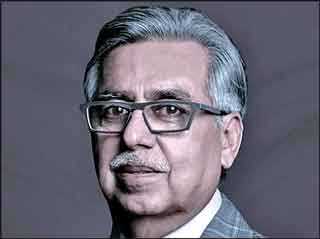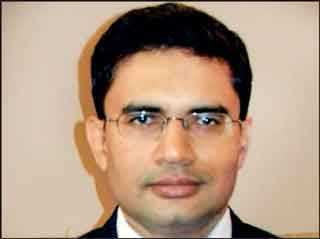Tuesday Feb 24, 2026
Tuesday Feb 24, 2026
Tuesday, 3 March 2020 00:00 - - {{hitsCtrl.values.hits}}
By Darshana Abayasingha
Dr. Pawan Munjal, Chairman of Hero MotoCorp India, the world’s largest manufacturer of motorcycles, said last month that this is the right time for his company to shift gears to evolve with changing times and to drive change to stay ahead of the curve. Accordingly, he unveiled a new vision statement for the company, which is ‘Be the Future of Mobility’.
 |
Hero MotoCorp India Chairman Dr. Pawan Munjal |
 |
Hero MotoCorp Director of Strategy Rajat Bhargava |
The company’s new ethos is founded on three pillars, to ‘Create, Collaborate and Inspire’, i.e. to create a robust roadmap setting best practices and benchmarks for the industry, collaborate with the external ecosystem to benefit communities and ensure sustainability, and inspire all stakeholders.
Speaking to media and stakeholders at Hero MotoCorp’s world-class Centre of Innovation and Technology in Jaipur, Munjal said: “Hero is still the world’s largest manufacturer of motorcycles and scooters in terms of unit volumes produced by a single company in a calendar year for 19 consecutive years. Today, our global footprint is spread across almost 40 countries in Asia, Africa, and South and Central America. What excites me most are the innovations that our global distributor partners, supported by the global business team, are pushing for.”
“In the midst of the ongoing slowdown in the industry, we launched as many as five new products in the first five months of this fiscal – that includes three new premium motorcycles and two new scooters. These launches not only make our product portfolio more diverse and robust, they also validate our strong focus on delivering globally benchmarked products to our customers across the world,” he said.
Since April 2011, Hero has invested a total of over $600 million in R&D and invested over $1 billion in setting up new manufacturing facilities and plant machineries, including the Hero Tech Centre Germany (GmbH) near Munich, which would serve as a platform to expand their presence in the European market, Munjal added.
In 2019, Hero MotoCorp became the first company amongst peers to get the certificate of Bharat Stage – VI (BS-VI) – the new exhaust emission regime in India that comes into effect from 1 April, which is equivalent to the Euro-VI standard.
Hero’s Splendor iSmart 110 became the first BS-VI motorcycle in the country. The company is now aggressively moving towards complete BS-VI migration. However, vehicles with BS-VI emission standard would not reach Sri Lanka just yet.
Speaking to the Daily FT in Jaipur, Hero MotoCorp Director of Strategy Rajat Bhargava explained why. “BS-VI, for multiple reasons, are not added to exports yet, like Sri Lanka. Whilst cost is a factor, the other element is the fuel quality requirement which also has to be consistent. In many countries, the fuel that is available is not even BS-III or BS-IV standard, in which case the vehicle performance will not be optimum. What we will do is we will take the BS-VI vehicles we are making and, except for the emission part, the other aspects would be made and exported to the latest specifications.”
He added that if there could be a way to relook at duties, there could be more paths to expand two-wheelers in countries across the region. It’s the most affordable motorised mobility available to people. Studies have shown that wherever the penetration of two-wheelers has gone up, employment goes up and literacy – particularly amongst women – also shows growth. Bangladesh has reduced the duties progressively, and it has helped everyone, he added.